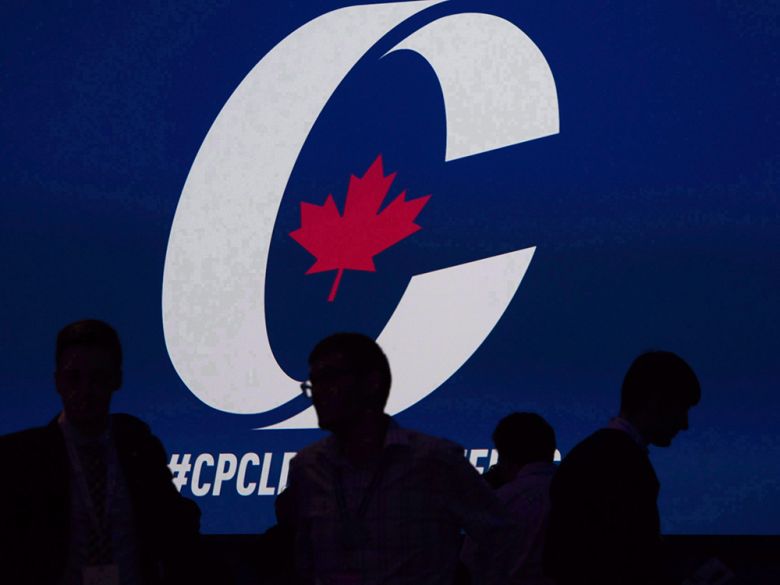
An ongoing series about conservatism in Canada. Today’s author: Sean Speer.
As the Conservative party’s leadership race gets started in earnest, there’s already plenty of commentary about how the party needs to eschew pesky social conservatives and their backwards-looking traditionalism if it wishes to win elections in modern Canada.
It’s not just unsolicited advice from the CBC or the Toronto Star either. Various conservatives are making a similar case. Social conservatism has come to be characterized as a “stinking albatross” around the party’s neck.
Big, if true, as the saying goes. But is it?
The short answer is no. A strategy of addition by subtraction for the Conservative party is flawed as a matter of political calculus and as a matter of substance.
A strategy of addition by subtraction for the Conservative party is flawed
Start with the underlying politics. The utilitarian calculus here is that the Conservative voters who are drawn to the party because of social conservatism are outnumbered by prospective Conservative voters who are turned off for the same reason. Swapping one for the other would thus boost the party’s overall electoral prospects. It sounds like a good trade, right?
Yet the working hypothesis that there’s a large number of untapped fiscally conservative yet socially liberal voters is dubious. Evidence from the United States, the United Kingdom, and elsewhere, in fact, shows the opposite. The least represented group of voters in these societies tend to combine social conservative dispositions with a skepticism about market economics. To the extent that these findings apply to Canada, the case for a shift to the left on economics and a shift to the right on cultural issues — similar to Germany’s Christian Democratic model — may be just as plausible a political strategy.
The point is, it’s far from clear that abandoning social conservatives would be the electoral boon that many anticipate. It could just as easily set the Conservative party further back from winning elections — especially when one considers the disproportionate contribution that social conservatives make in the form of donations, volunteer hours and votes. That as many as one-third of current Conservatives MPs are said to be pro-life may be a good proxy for where Conservative voters stand.

But this shouldn’t just be a strict political calculation. Political parties are supposed to cohere around a set of principles and values. And social conservatism is an indivisible part of a conservative temperament and political agenda. You cannot really have one without the other.
Reams of psychological research finds that respect for tradition and long-standing institutions (including the market economy, families and religion) are common among self-identified conservatives. It’s not a policy position that can just be adjusted or discarded. It’s how conservatives are wired. Political strategists can’t change that.
And they shouldn’t want to. Social conservatism, broadly defined, is a useful ballast against the dynamic churn of modern life. At a time when everyone is seemingly for unrelenting progress, it’s valuable to have a political vehicle that “stands athwart history, yelling Stop.” Or at least slow down.
It’s not a policy position that can just be adjusted or discarded. It’s how conservatives are wired
This isn’t about mere nostalgia or an unthinking bias in favour of the archaic. It’s a recognition that our intellectual and political inheritance has withstood 2,000 years of Western civilization for a reason. These ideas, institutions and traditions have been tested, challenged, and, at times, threatened. They have adapted, evolved and ultimately endured. Change, in short, should be continuous yet incremental.
This conservative perspective is especially important in today’s politics given that left-wing parties have rooted out any such voices from within their ranks. The Conservative party is now, for all intents and purposes, the only vehicle for Canadians with traditional views to participate in our politics. It would be regrettable if the party followed a similar path as the Liberals or NDP. The message to traditional voters would be clear: you aren’t welcome to be part of mainstream politics.

Now, of course, social conservatives need to be pragmatic and prepared to make compromises. Their worldview is a minority persuasion in Canada. That ought to necessarily instil a degree of realism about what can be achieved through leadership politics alone. They’ll need to broaden their priorities, build coalitions and try to persuade the broader, more secular public that they’re right.
But the idea that the Conservative party would be better off without them is misguided. The party won’t expand its electoral base if it starts by cleaving off one of the biggest pieces. And it won’t be able to offer Canadians a clear, conservative alternative if it jettisons traditional values. As Conservative voters decide who to support in the party’s leadership, they’d be wise to ignore those counselling otherwise.
Sean Speer is a policy researcher and a former adviser to prime minister Stephen Harper.


























